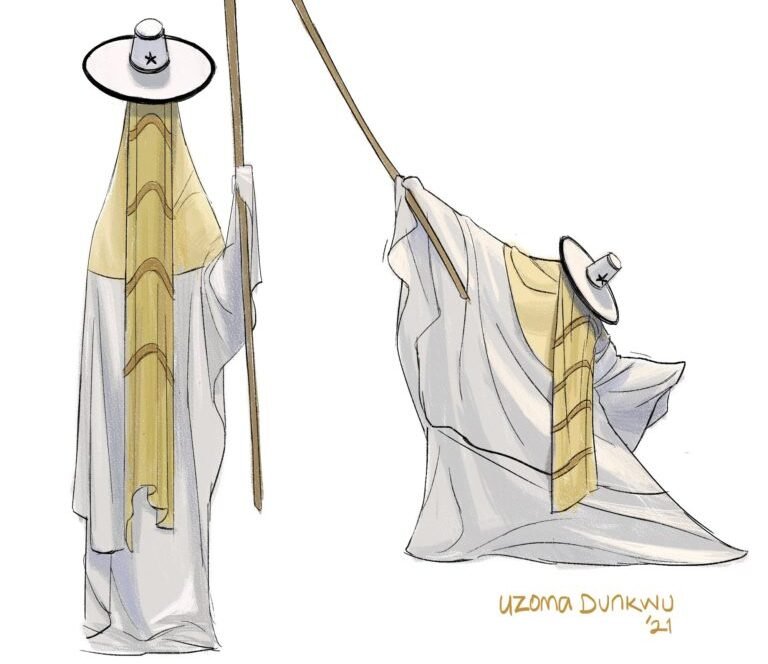Contents
ToggleIn short
The first Eyo festival in Lagos (Nigeria) took place on February 20, 1854 to commemorate Oba Akintoye. This festival is not organized every year, and the date is not fixed and has no calendar logic, it is surely a funeral rite for kings.

Eyo Festival, to guide the grown-ups to the other world
The word "Eyo" also refers to the costumed dancers, known as masqueraders who come out during the festival. The origins of this observance lie in the inner workings of the secret societies of Lagos. Back then, the Eyo festival was held to escort the soul of a deceased Lagos king or chief and to usher in a new king. The festival is widely believed to be one of the manifestations of customary African revelry that serves as a precursor to modern carnival in Brazil.
On Eyo Day, the main highway in the heart of the city (from the end of Carter Bridge to Tinubu Square) is closed to traffic, allowing the procession from Idumota to Iga Idunganran Palace. The Eyo masqueraders dressed in white represent the spirits of the dead and are called in yoruba “agogoro Eyo” (literally: “big Eyo”).
Here, the participants all pay their respects to the reigning Oba of Lagos. The festival takes place whenever occasion and tradition demand it, although it is usually held as part of the final funeral rites of a highly regarded leader of the king's court.
Among the Yorubas, indigenous religions have largely lost the vast majority of their traditional followers to Christianity and Islam. It is on these occasions that their traditional monarchs and nobles exercise the most residual power.
Social networks
The Yoruba (Nigeria) performed the Eyo rite to guide the spirit of the deceased king and inaugurate a new king. Nowadays, the festival is mainly carried out for economic and tourist reasons. #mythology #myth #legend #calendar #20February #eyo #yoruba #lagos
Picture
